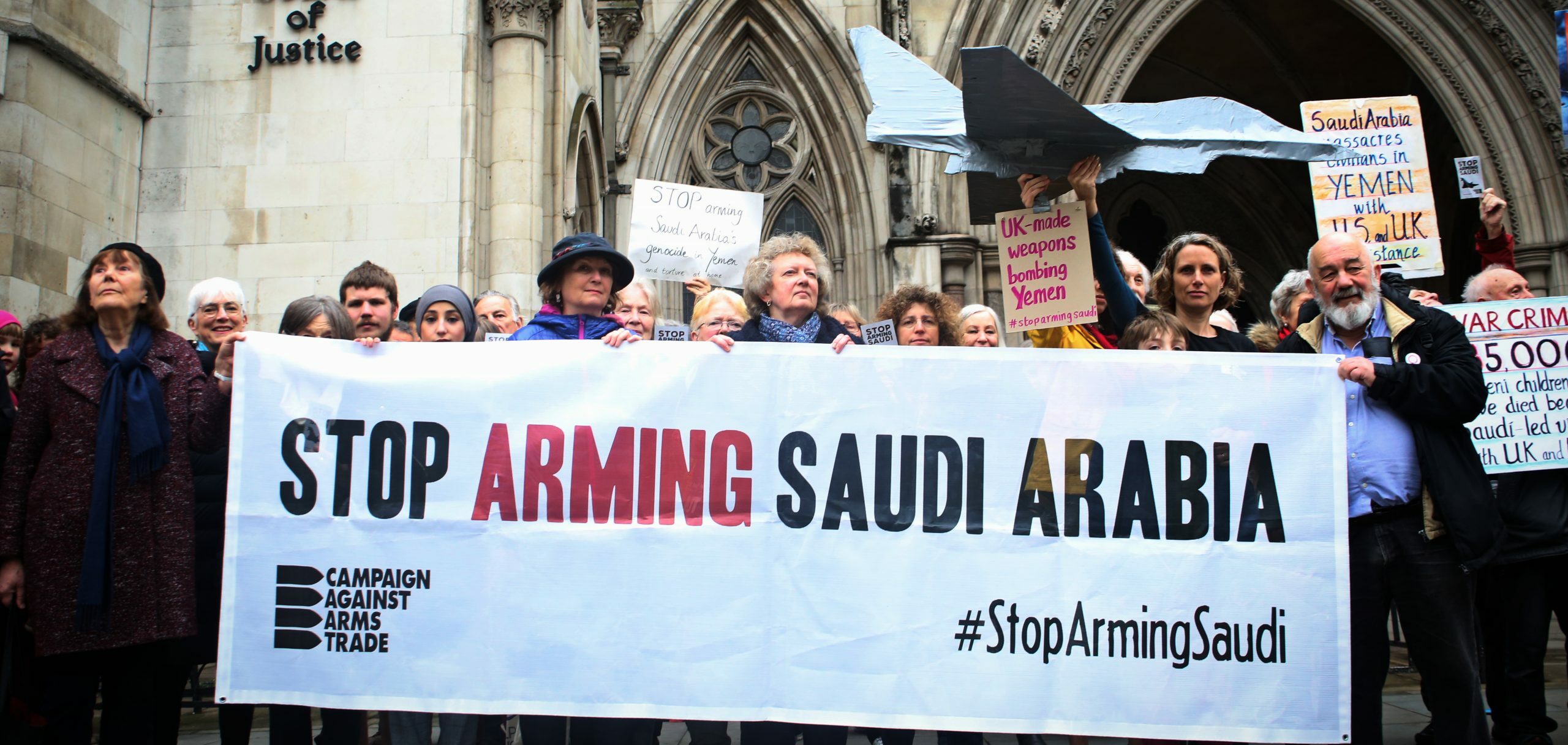Join us in taking a stand against UK arms sales to Saudi Arabia and stand in solidarity with Yemen!
UK complicity in Yemen war
The war in Yemen has been raging on for 9 years, and has led to an estimated 377,000 deaths through direct and indirect causes, according to the UN. The UK has supplied billions of pounds worth of fighter jets, bombs and missiles to the Saudi-led coalition for use in Yemen. At least 8,983 civilians have been killed in attacks by the coalition, which has targeted homes and farms, schools and hospitals, weddings and funerals.
Arms sales in these circumstances are prohibited by UK rules, which say they should not be allowed where there is a “clear risk” that a weapon “might” be used in a serious violation of International Humanitarian Law.
Yet the UK government continues to promote and protect weapons sales, despite the devastating human cost. In total, CAAT estimates that the UK has supplied arms worth over £23 billion to Saudi Arabia since the war in Yemen began.
Info about the court case
In 2019, legal action by CAAT forced the government to stop issuing export licences for weapons that could be used in the war in Yemen. In a landmark decision, the government was ordered to retake all its previous decisions in a lawful manner.
But in July 2020 the government resumed arms sales, claiming any violations of international humanitarian law were only ‘isolated incidents’. Since then it has licensed more than £2.2 billion additional weapons sales in support of the war.
In January 2023, we took our legal case to court again to challenge the government over the supply of UK weapons for the war in Yemen.
CAAT’s new case argued that the government’s conclusions that there were only a “small number” of violations of International Humanitarian Law committed by coalition forces, and that these did not form a “pattern”, are irrational, flying in the face of the weight of evidence to the contrary. CAAT further argued that even “isolated incidents” of violations could still involve a clear risk of further violations.
On 6 June 2023, the High Court delivered its verdict following the judicial review. The Court dismissed the grounds for challenge brought by CAAT, finding that the then Secretary of State for International Trade was not acting irrationally in their decision to licence arms sales to the Saudi-led Coalition. This decision related to assessments of the likelihood of violations of International Humanitarian Law (IHL) by the Saudi-led Coalition in Yemen.
Despite being disappointed by the result, CAAT remains defiant over challenging the arms sales. CAAT argues that the judgment exposes the flaws in the UK export licensing process and remains committed to achieving justice for the Yemeni people whose lives have been devastated by the Saudi-led coalition’s bombing campaign.




